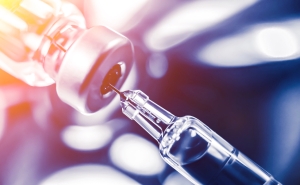The Impact of COVID-19 and Cancer Survivorship in the African American Population

Soon after COVID-19 swept into the U.S. in early 2020, hospitals across the country had to prioritize care in order to accommodate the surge of COVID-19 patients. In many hospitals, this meant suspending elective procedures such as cancer screenings as well as surgeries and other care for people with cancer. The overall rate of surgical procedures decreased by 48% during the initial suspension of elective surgeries compared with the same period in 2019. From March 2020 to May 2020 alone, some 10 million people missed cancer screenings.
Even before the pandemic, African Americans experienced disparities in cancer treatment and outcomes . The pandemic exacerbated these disparities—and piled on new ones. In a report, the CDC highlights that COVID-19 unequally affected many racial and ethnic minority groups, who were at higher risk of both contracting COVID-19 and dying from it.
“The impact of the pandemic is for everyone but even worse for people without resources, people of color and low socioeconomic status,” says Kala Visvanathan, MBBS, MHS ’98, a professor of oncology at the Johns Hopkins School of Medicine and in Epidemiology at the Bloomberg School. “I think overall there’s been an impact, but it’s obviously always heightened in these groups.”
Avonne Connor, PhD, MPH, an assistant professor in Epidemiology whose research focuses on cancer survival and health disparities, points to a study on COVID-19’s impact on 890 African American cancer survivors in Detroit, Michigan.
The study found that more than 40% of cancer survivors reported some disruption in their access to medical care because of the pandemic. Delays in detection and treatment affect the chances of cancer survival—especially in a population at increased risk from COVID-19.
“This is an already vulnerable population, and we also know that vaccination rates are less among African Americans in comparison to other ethnic and racial groups,” says Connor. “So they’re definitely a high-risk population for having COVID in conjunction with having their cancer diagnosis.”
For example, African Americans living with cancer are also more likely than their white counterparts to have multiple comorbidities, such as diabetes, hypertension, obesity, and autoimmune disease. Disruptions to care for these conditions—in addition to delays in cancer care— compound the negative impact on disease management.
In the study, 40% of the survivors also reported changes in health behaviors such as a decrease in physical activity and an increase in smoking and alcohol use, which “have also shown to negatively affect survivorship outcomes,” says Connor.
The delays and disruptions COVID caused will continue to affect cancer care in the future. Connor points to another study anticipating an uptick in advanced cancer diagnoses for years to come as a result of the dramatic decrease in screenings and the interruption to health visits during the pandemic.
“I believe these later stages at diagnosis will impact the length of survivorship that cancer patients will experience,” says Connor. “Those patients will require more aggressive cancer treatments (increasing health care expenses) or, in really advanced cases, will be more likely to be given palliative care instead of curative therapies.”
Connor adds that people of color are already more likely to be diagnosed with later stages of breast, prostate, and colon cancers—a problem exacerbated by the pandemic. “The delays in diagnosis due to the pandemic among this population will further expand the disparities in survival among racial and ethnic groups,” she says.
Grace Fernandez is a communications and marketing specialist in the Office of External Affairs at the Johns Hopkins Bloomberg School of Public Health.





